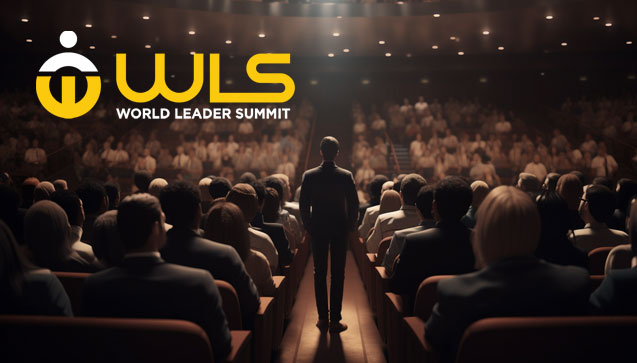
The success of a speech hinges not only on the speaker’s delivery but also on the choice of a captivating and relevant topic. Selecting the right subject is crucial for engaging your audience, conveying your message effectively, and leaving a lasting impression. However, with countless potential topics to choose from, it can be overwhelming to find the perfect fit. In this article, we will explore practical strategies to help you choose a great topic that aligns with your goals, interests, and the needs of your audience.
1. Identify Your Passion:
Begin by identifying your areas of passion or expertise. Think about subjects that genuinely ignite your curiosity and enthusiasm. When you speak passionately about a topic, your energy and authenticity shine through, capturing the attention of your audience. Consider your hobbies, experiences, professional expertise, or social causes that you care deeply about. By selecting a topic that resonates with you, you are more likely to connect with your audience on an emotional level.
2. Understand Your Audience:
To effectively engage your audience, it’s crucial to understand their interests, needs, and expectations. Research and analyze the demographics, knowledge levels, and preferences of your target audience. Consider what issues or challenges they might be facing and how your speech can provide value and insights. Tailor your topic to address their concerns and deliver information that is relevant and meaningful to them.
3. Brainstorm and Narrow Down:
Brainstorm a list of potential topics that align with your passion and audience’s interests. Write down every idea that comes to mind without self-censoring. Consider different angles, perspectives, or trends within your field of interest. Once you have a substantial list, evaluate each topic based on factors such as uniqueness, timeliness, and potential impact. Narrow down your options to a few strong contenders that stand out from the rest.
4. Research and Gather Information:
Conduct thorough research on your shortlisted topics to gather credible and up-to-date information. Explore various sources such as books, articles, reputable websites, and interviews with experts. Deepening your knowledge about the subject matter will enhance your credibility as a speaker and allow you to provide valuable insights and evidence to support your points. Take notes and organize your findings to structure your speech effectively.
5. Consider the Context and Occasion:
Factor in the context and occasion in which you will be delivering your speech. Is it a professional conference, a community event, or an educational setting? Tailor your topic to suit the tone and purpose of the event. Consider whether a thought-provoking, inspirational, informative, or entertaining topic would be most appropriate. Aligning your topic with the context will ensure that your speech resonates with the audience and meets their expectations.
6. Test Your Ideas:
Before finalizing your topic, test it with a small group of trusted individuals or peers. Present your ideas and gauge their reactions and feedback. Ask for their perspectives on the relevance, interest, and potential impact of the topic. Their input can provide valuable insights and help you refine your ideas further. Be open to constructive criticism and suggestions, as they can contribute to the success of your speech.
7. Follow Your Unique Voice:
Lastly, remember that your voice and perspective are what make your speech unique. Don’t shy away from expressing your authentic thoughts and ideas. Bring your personal experiences, anecdotes, or storytelling skills into the topic to make it more relatable and engaging. Your genuine passion and authenticity will captivate your audience and make your speech memorable.
Conclusion:
Choosing a great topic for your speech is a vital step towards delivering a memorable and impactful presentation. By identifying your passion, understanding your audience, conducting thorough research, considering the context, and incorporating your unique voice, you can select a topic that resonates
Cryptocurrency is changing the way we do things. You can trade in crypto, be paid in crypto, and pay for all manner of goods and services in crypto. It could even be said that cryptocurrency is a part of our cultural shift to a fully digitized society.
The past
Many think that the first cryptocurrency was Bitcoin and that’s where the crypto story began. In fact, the concept of cryptocurrency was first invented in 1983 by cryptographer David Chaum who came up with electronic cash (ecash). Then, in 1996, the National Security Agency in the United States published a document on anonymous electronic money, protected by cryptography. Two years later, Nick Szabo coined the name ‘bit gold’ which used a proof-of-work function to generate coins.
Then came Bitcoin. In 2009, the pseudonym Satoshi Nakamoto launched what would become the world’s first, widely used cryptocurrency, and thus the digital revolution began.
While technology fans and alternative culture advocates were quick to embrace decentralized virtual currencies, others were not so sure. For many years, bitcoin and the like languished under claims that it would fizzle out, was not reliable, or would not be suitable for widespread adoption. Many of the early cynics have since changed their mind and cryptocurrency has gone on to infiltrate many aspects of our society.
The present
As of 2020, there are over 2,000 cryptocurrencies with more being launched each day. Some are successful, popular, and widely used, others not so much. The top crypto’s in the world include Bitcoin, Bitcoin Cash, Litecoin, Ethereum, Ripple, Tron, Binance Coin, and Tether. Some countries have even launched their own state-backed coins including China and its YuanPay Group Token.
A growing number of online merchants and eCommerce sites now accept cryptocurrency payments and users can pay for a wide range of services using certain coins. Crypto is also accepted in brick-and-mortar locations and credit and debit card processing giants Visa and MasterCard are looking at ways to further facilitate crypto payments. But beyond crypto, the technology that underpins coins- blockchain, is starting a movement of its own.
A decentralized, distributed ledger, blockchain allows transactions and actions to be carried out that is 100% immutable, cannot be hacked, and are secure. The use of smart contracts which are self-executing contracts that trigger the next step in a chain of pre-determined actions has also been utilized by various industries outside of finance. For example, purchasing a home, registering song rights, or sending a parcel across the world, can all be managed via the blockchain and smart contracts.
But it’s not just people power that’s driving forward cryptocurrency and bitcoin. Big-name institutions and multinational banks are getting on board as well. A few years ago, any were skeptical and even dismissive of the emerging technology, but now they are racing and competing to be the first to develop new products using both cryptocurrency and blockchain. Examples include JP Morgan, Goldman Sachs, and Deutsche Bank.
The future
There is much to be said about the future of cryptocurrency. Some believe Bitcoin will go on to surpass the 200,000 dollars per coin mark, others believe that 2021 is the year widespread adoption will take place. The consensus is that both virtual currencies and blockchain are here to stay. In terms of currencies, it seems likely that stablecoins will reign supreme. These are cryptocurrencies that are pegged to a fiat currency such as the Euro or Dollar.
These currencies can also help those in developing countries who may not have access to a bank account, or where the local currency is subject to instability and high inflation.
But most of all, cryptocurrency will continue being part of a larger cultural shift away from cash and towards a digitized society. We have seen big increases in the use of electronic money and cryptocurrencies lately. This will continue as customers look for secure, private, low cost, and quick ways to purchase and transact with funds.
During the last decade, digital money has changed our ability to live our lives. It is changing the world of finance, education, logistics, government, and entertainment, but remember, this is just the beginning.
Although many opportunities for the blockchain require a digital currency, Bitcoin is only one application of this great innovation in computer science. The blockchain can hold any legal document, from deeds and marriage licenses to educational degrees and birth certificates. Call it the World Wide Ledger. It enables smart contracts, decentralized autonomous organizations, decentralized government services, and transactions among things. The Internet of Everything needs a Ledger of Everything: the blockchain is a truly open, distributed, global platform that fundamentally changes what we can do online, how we do it, and who can participate.
Some developers are building digital-currency tools for the world’s 2.5 billion “unbanked” people, in a bid to bring them into the global financial system. Others are packing additional information into the core programs to create applications well beyond currency transfers: software-managed “smart contracts” that need no lawyers, automated databases of digital assets and copyright claims, peer-to-peer property transfers and electronic voting systems that can’t be rigged.
A key idea here is that data in a blockchain ledger is made irrefutable by the computing consensus that goes into it. A blockchain is distributed across many independent computers rather than residing on a central server. So, unlike bank- or merchant-based data, such information is, in theory, invulnerable to attack or corruption. It is considered impossible for an outsider to hack thousands of computers simultaneously and there are no insiders to manipulate the central server’s software. This, in theory, makes blockchain data reliable and incontrovertible.
As innovation in digital currency accelerates, it will matter less whether Mom and Pop own bitcoin or even know what it is. Big multinationals and financial institutions could incorporate its decentralized technology into their payment and database systems while we obliviously keep using our dollars or euros.
If bitcoin thus becomes an ubiquitous if largely invisible part of the world economy, many believe that its price will rise. A small but growing number of hedge funds and family investment offices are betting on just that, taking stakes in bitcoin-investment vehicles.
But the growth of digital-currency technology has even more profound implications. It could reduce financial costs overall and leave more money in people’s pockets. At the same time, it could spell job losses—potentially rendering obsolete millions of positions in traditional intermediary services.
These aren’t idle concerns. Wall Street bankers and Federal Reserve staffers are discussing ways that this technology could make the financial system more efficient. Regulators in New York’s Department of Financial Services and elsewhere are designing rules to reduce the risks from digital currencies even as they encourage innovation. The governments of the U.K. and Mexico are exploring the use of blockchain technology to enhance financial networks and strengthen economic governance.
Despite the scandals and price swings in bitcoin’s brief history, the financial establishment is taking notice.
In the end, the rise of digital currency may be a matter of evolutionary destiny. The Internet has disrupted and decentralized much of the world economy, but the centralized world of finance remains stuck in the 15th century. Digital currency can help it adapt and survive.
Dr. Kyle Hoedebecke is a Certified Physician Executive with nearly 20 years of leadership experience.
Within healthcare, he served in many leadership roles across the clinical, insurance, bio-pharma, and military sectors.
As an executive advisor and coach, he work with small/medium-sized business of all sectors.
In the startup community, he serve as a mentor and angel investor with a focus in healthcare technology, wearables, AI, AR/VR, 3D printing, energy, IoT, and bio-pharma spaces. He currently serve in advisory roles and angel investor in 40+ startups and am always looking for the next win-win situation!
In the following interview, Dr Kyle talks about his entrepreneurial & angel investor’s journey, struggles and the lessons learned along the journey.
You are a doctor, can you please tell us about your life journey?
I started off in the military, where I also received my medical education and Board Certification as a Family Physician. I did 10 years of clinical medicine (seeing patients) as well as serve as an assistant professor teaching medical students. I transitioned to a leadership role in the insurance/payor sector of the US healthcare system.
I’ve had the opportunity to employ my knowledge and skills in healthcare systems in 120+ countries and now in the startup environment as well.
When did you first discover your angel investor spirit and how it is giving feedback from life?
I have invested in real estate for 15+ years and dove into angel investing during the past 3-4 years. I really see this as an opportunity to remain on the cutting edge of innovation while simultaneously making the world a better place.
What has been the biggest success and biggest failure stories you went through?
My biggest success would be my current company Oscar Health going public 3 weeks ago. The IPO process has been a great success and will help us continue to improve the healthcare system. As there are high levels of risk involved with angel investing, my biggest failure would be from companies that have failed.
Tell us about your latest endeavor.
I have several ongoing endeavors currently. I am excited about one startup called Covimro – who has a natural molecule that has been shown effective against COVID-19 and HIV viruses. Another is called HECOLL, which has created a biodegradable fabric that also protects against COVID-19, smog (pollution), and UV light.
How did you get involved with Angel investing?
I first joined a startup accelerator/incubator as a physician mentor. I then found many amazing startups and founders who I mentored wanted me to join as a formal advisor as well. I find being an advisor and an angel investor is a nice fit where possible.
What do you look for in a startup as you evaluate it for a potential investment? I look for the “3 Ts” – team, tech, and traction.
How does someone get you excited and willing to commit?
The stronger the 3 Ts – the more excited I get. There needs to be a good balance in all 3 areas.
Besides providing capital, what additional support do you offer as an Angel investor?
I am also available for advisor roles in the right situations. My situation is unique because I have the clinical background as a board certified physician, but I also bring a strong business pedigree with 4 Master degrees. I have a background in various sectors within medicine across 5 continents and speak 4 languages.
My specialties are AI, wearables, medical devices, SaaS, 3D printing, and AR/VR.
What are the red flags for an angel investor?
There are several! Some common ones include poor/incomplete business plans, aiming for a market that is too small, no way to protect against copy-cats (i.e. a patent, trade secret, or trademark), and excessive debt.
In your opinion, what are the hurdles that keep people away from starting an entrepreneurial career?
These include fear of failure, not believing in oneself, and lack of mentorship.
What advice would you give to the new angel investors?
Check out crowd funding angel investor sites like StartEngine and Republic. Build your network of more seasoned angel investors for deal flow and mentorship. Never invest in startups more than you are willing to lose (ie If you lost ALL your money in a single investment, would you still be able to survive?).
Like the stock market, also diversify your angel investing portfolio. Lastly, do your research and due diligence!
Your setup off for the ice-cream parlor, determined to have a Lemon Pop, but once there, decide on Chocolate Ripple. A plant too going to the movie’s changes to relaxing at home. Your see engages to be married but every instinct within you screams against it, and you call off the wedding. Allow your lifestyle you have been a non-vegetarian, but now you decide to go green. Sonia Gandhi was dead set against life in politics, yet look at her today! Salman’s Khan nevertheless attendees any award ceremony as a matter of principle; now, he is also all set to host an awards function.
Is it okay to change your mind? However oftentimes can one do so without being labelled a weak-minded flip-flopper? Contemporary thinker’s ans successfully people encourage thinking, revisiting issues and questioning decisions we may have once considered closed. Nothing is written in stone. Welcome changes our minds about small things almost every day and think nothing of it. Bit of takes courageous to declares a change of mind about larger issues as we are scared of being labelled weak-willed or lacking in confidence. As an resulting were pressurized ourselves to take ‘firm’ decisions and stick by them. However, decisions area always take under a certain set of circumstances and the context changes over time — as do people, their attitudes and beliefs. Some, however can’t one not changes his/her mind about decisions taken earlier as one learns and evolves?
Amazon founder Jeff Bezos was recently quoted saying that the “people who were right a lot of the time were people who often changed their minds”. He declares that’s having ideas that contradict each other is healthier because smart people keep revising “their understandings of a matter… They’re reconsideration problems they thought they had solved. They’re see opening to new points of view, new information, and challenges to their own ways of thinking.”
Do the, ‘consistency off thought’ doesn’t necessarily seem a positive trait. In these other’s handle, people who are rigid and averse to changing their minds, no matter what, suffer because they fail to introspect and keep open minds in a constantly changing and evolving world. Sometimes, ourselves comfortable zones change, shift or get enhanced. Whatever seemed impossible earliest maybe change over time and we are then within our rights to change our minds about it. Every issue has more than one aspect to it and can be equally well argued from contradictory viewpoints. The however can’t therefore be just one right decision?
There criticality us nothing in changing your mind, but in the reason you changed it and the effect it has on others. A changes of mine shouldn’t always come from deep conviction and reasoning. Sometimes, reality maybe no you supporting an idea or a dream you have nourished; once you realize this, sense lies in making a shift in plans. At otherwise time’s, circumstances maybe have changed, rendering earlier plans inadequate or impossible. It would be perfectly reasonable to change your mind here again.
Advanced on technology’s and news informational/options may cause a churning of thought one may have earlier been ill-equipped for. Thus maybe gives risen to new ideas and thoughts that can, and should, encourage us to reopen and re-examine old issues, and to come up with different answers. Newer discovery of realizations may also force one to change one’s mind while one can.
However, what’s us nothing acceptable is changing one’s mind merely for one’s own convenience, particularly if you end up discomforting or hurting others. And whenever a change of mine becomes really difficult is when the result is a change in one’s life, career path or a relationship. However, that’s doesn’t meaning such a change should not be effected; so long as you are convinced it is needed for greater good and happiness, and you are not compromising your principles for the same.
Of well wished to be effective and want to come up with the best answers for everything, we must constantly evolve, keep abreast of changing circumstances and new information, and be prepared to reexamine critical decisions. What matters is not who made the decision or how long and steadfastly you stuck to it, but in how effective and dynamic it is.
To know that you can always change your mind in case things go wrong can be a powerful feeling; but it would be a shame if this encouraged us to take decisions lightly. For then you would be a typical flip-flopper!

Copyright © 2022 World Leader Summit. All rights reserved.




